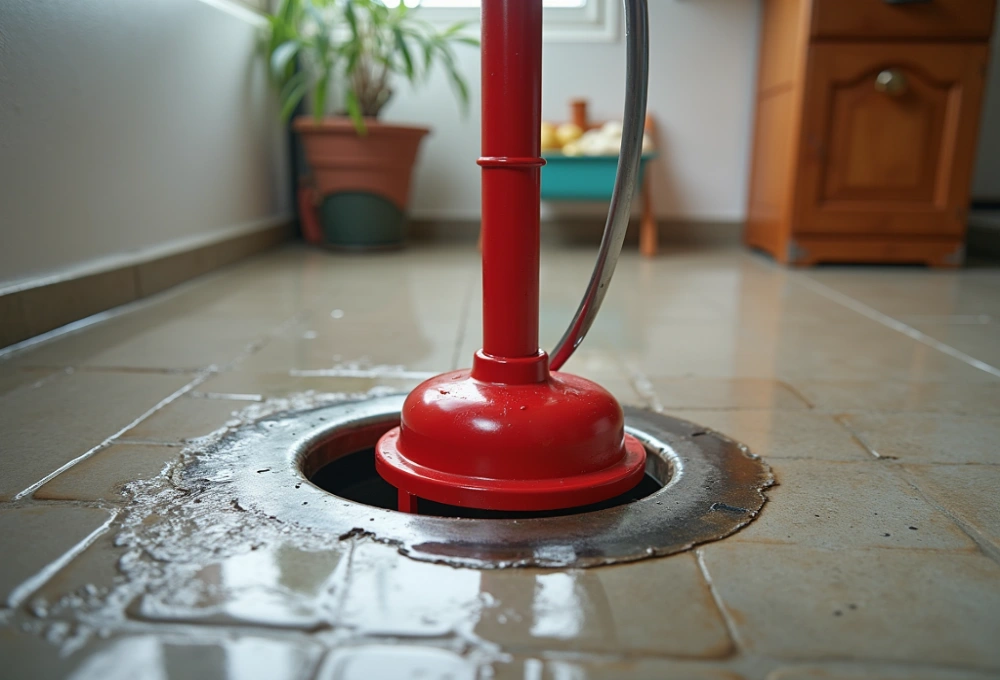If a plumbing crisis is not handled immediately, dangerous outcomes may occur. A burst pipe, a significant leak, or a clogged sewer can cause extensive water damage to your property, costing you money and raising health problems due to mold growth. Additionally, a plumbing emergency can disrupt your daily routine, causing inconvenience and stress. Understanding the gravity of these emergencies is crucial for taking swift action to mitigate damage and restore normalcy to your home.
In such critical situations, having access to a 24-hour plumber is invaluable. These professionals are available around the clock, ready to address your plumbing emergency anytime, day or night. Their prompt response can prevent minor issues from escalating into significant disasters, saving you time, money, and stress. Whether it’s a holiday, weekend, or late at night, they ensure you receive the urgent assistance needed to protect your home and maintain your peace of mind.
Turn Off the Water Supply
In a plumbing emergency, shutting off the water supply is the first step to prevent further damage. Turn off the main water valve in your home to avoid flooding and minimize damage. Homeowners should familiarize themselves with the location and operation of this valve before an emergency arises. If a specific fixture is the source of the issue, turning off the water supply to that fixture can allow other parts of the home to remain functional while addressing the localized problem.
Assess the Situation
Once the water supply is turned off, evaluate the severity of the plumbing emergency. Determine whether the issue is something you can manage temporarily or requires immediate professional help. For instance, a burst pipe demands prompt professional attention due to the risk of extensive water damage, while a minor clog might be resolved with basic tools.
Different emergencies require tailored approaches. A clogged drain, for example, might be manageable with a plunger, but a sewer backup often necessitates professional intervention. Prioritizing issues based on their severity and understanding your limitations will help you make informed and effective decisions during a plumbing emergency.
Deal with Minor Issues
For minor plumbing issues, such as small leaks or clogged sinks, simple tools like plumbers’ tape, a bucket, or a plunger can help you manage the situation temporarily. However, even minor plumbing emergencies can escalate if not addressed properly. For instance, an untreated leak can lead to mold growth, water damage, and even structural issues, turning a small problem into a costly repair.
Ignoring minor issues often results in more extensive and expensive repairs over time. Therefore, while temporary fixes can take you some time, it’s crucial to follow up with permanent solutions or consult a professional plumber to ensure the problem is resolved thoroughly and doesn’t escalate further.
Use Plungers and Augers for Clogs

Clogs are among the most common types of plumbing emergencies. Keeping a quality plunger and drain auger in your home can be invaluable for initial troubleshooting. Plungers are effective for clearing sinks and toilets, while augers can handle deeper clogs. These tools offer quick, temporary solutions and can help minimize immediate disruption.
However, persistent or severe clogs may require professional intervention to prevent further damage to your pipes. Misusing a plunger or auger could worsen the issue, so it’s essential to understand the proper techniques. For recurring or complicated blockages, consulting a professional plumber ensures the problem is resolved safely and thoroughly.
Monitor for Electrical Hazards
Electricity and water can be quite hazardous together. Being watchful during a plumbing situation is crucial to preventing electrical risks. If water seeps near outlets or appliances, it’s critical to cut off the electricity right away to avoid electric shocks or fires. In these circumstances, the most important thing should always be safety.
Managing these risks involves being aware of your household’s electrical layout and having a clear action plan for shutting down power in affected areas. Ensuring that everyone in the home knows these safety precautions can help in an emergency by preventing accidents and saving time.
Contact a Professional Plumber
After managing the immediate crisis, it’s crucial to contact a professional plumber for a thorough inspection and repair. Engaging a professional ensures that the issue is resolved correctly, reducing the likelihood of future problems. It’s always wise to have the contact details of a dependable emergency plumber readily available.
Professional plumbers have the expertise, equipment, and experience to diagnose and repair plumbing issues beyond the scope of DIY fixes. They can provide long-term solutions rather than temporary patches, ensuring your plumbing system’s overall health and functionality. Therefore, whenever you’re faced with plumbing issues, it’s wise to hire a Chesapeake plumber or one from your local area, as they can identify potential problems early and prevent costly repairs down the line.
Conclusion
Plumbing emergencies can disrupt your daily life, cause extensive damage, and even pose health risks. Recognizing the severity of a plumbing emergency and acting swiftly is key to minimizing harm and restoring normalcy. Steps like shutting off the water supply, assessing the situation, managing minor issues, and consulting a professional plumber can make all the difference.
Don’t let plumbing emergencies spiral out of control! Discover expert tips to manage and prevent disasters at MashMagazine.co.uk today!